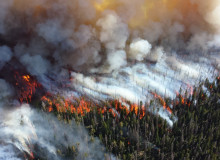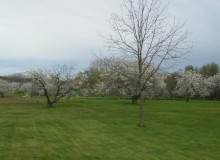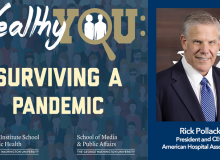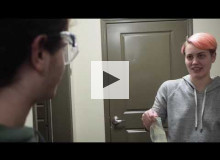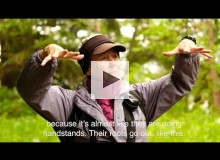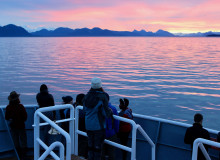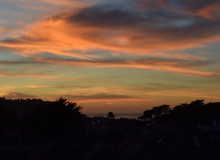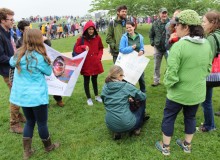communicating science
University of Rhode Island
Climate change affects us all in different ways. Here are five tips to reach your audience most directly.
SUNY College of Environmental Science and Forestry
Intentionally developing place connections will allow us to create environmental actions that are community-driven.
Founding Director, Planet Forward
Rick Pollack, president and CEO of the American Hospital Association, talks about how hospitals around the U.S. have been impacted financially by the pandemic and why it's important to "follow the science."
Digital Editor, Planet Forward
Here are our key takeaways from TV media experts on how to create lasting climate communication that won’t get washed away in the rising tides.
An insight into the struggles encountered by genetic researchers trying to make the world a better place.
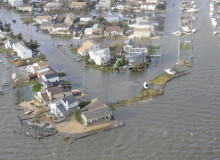
Despite an increase in extreme weather, like that of 2012's superstorm Sandy, research tends to suggest that extreme weather does not have a lasting impact on public opinion. Shown here are areas of Long Island, N.Y., following Hurricane Sandy on Oct. 30, 2012. (Petty Officer 2nd Class Rob Simpson/U.S. Coast Guard)
Planet Forward Reporter | SUNY Purchase
Jeremy Deaton, a journalist for Nexus Media News and creator of Climate Chat, talked with Planet Forward about navigating climate change deniers, conservative interest in the environment, and climate policy.
George Washington University
In the final piece of our Alaska series, watch this video and hear about the connections made with those in Alaska using different types of storytelling, and how we might find our own stories.
Planet Forward Senior Correspondent | Cornell University
Next in our Alaska series: While many still find climate change up for debate, perhaps the way to engage and persuade these individuals is by focusing on its effects in their own communities rather than in far away places.
Planet Forward Senior Correspondent | Reed College
What will the world look like if science gets lost in the reds and blues when it is most needed? As politics and science stray from each other, scientists must inject themselves into the political conversation to save our planet.
Planet Forward
Check out our photo gallery from SUNY-ESF's Earth Day teach-in tent, prior to the March for Science in Washington, D.C.

